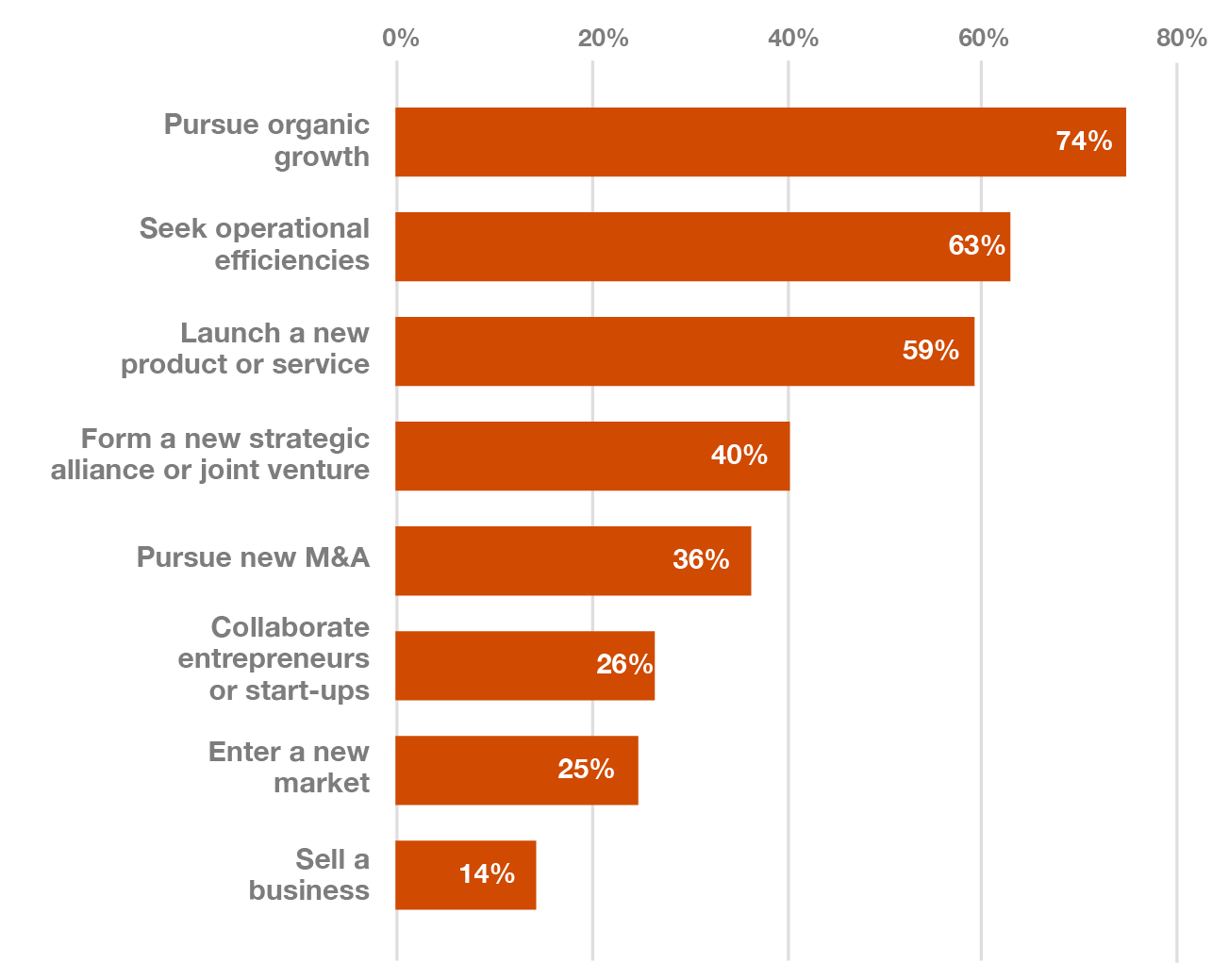
COVID-19 determines outlook and plans of CEOs
Dutch results of PwC’s 24th CEO Survey
While the world has been gripped for a year by the COVID-19 pandemic, hopes of an economic recovery are rising among CEOs. This is evident from the results of PwC's 24th CEO Survey. The annual global survey shows that business leaders see opportunities primarily in an accelerated digital transformation. At the same time, they also see downsides: CEOs are very concerned about cyber security and the spread of misinformation. The results of the CEO Survey include the responses of 5,050 CEOs, 141 of whom are Dutch.
Download the Dutch resultsCEOs optimistic about economic growth
While CEOs were cautious last year or even gloomy about the global economic outlook, they are now far more optimistic. This is despite the fact that the world has been experiencing an unprecedented contraction caused by the COVID-19 pandemic. According to Chief Economist Jan-Willem Velthuijsen, CEOs are taking heart from the bright spots in the first few months of this year. “The sombre Brexit scenario has not materialised, a US president has been elected who is not on an immediate collision course with foreign countries and the vaccination rollout against COVID-19 is gathering pace.”
At the same time, the Chief Economist warns that this optimism does not apply to every company and every sector. Jan Willem Velthuijsen: “I expect the next few months to show a K-shaped scenario: some companies will rebound quickly, others will have much more difficulty doing so or will still need help.”
Dutch CEOs' expectations of economic growth over the next 12 months
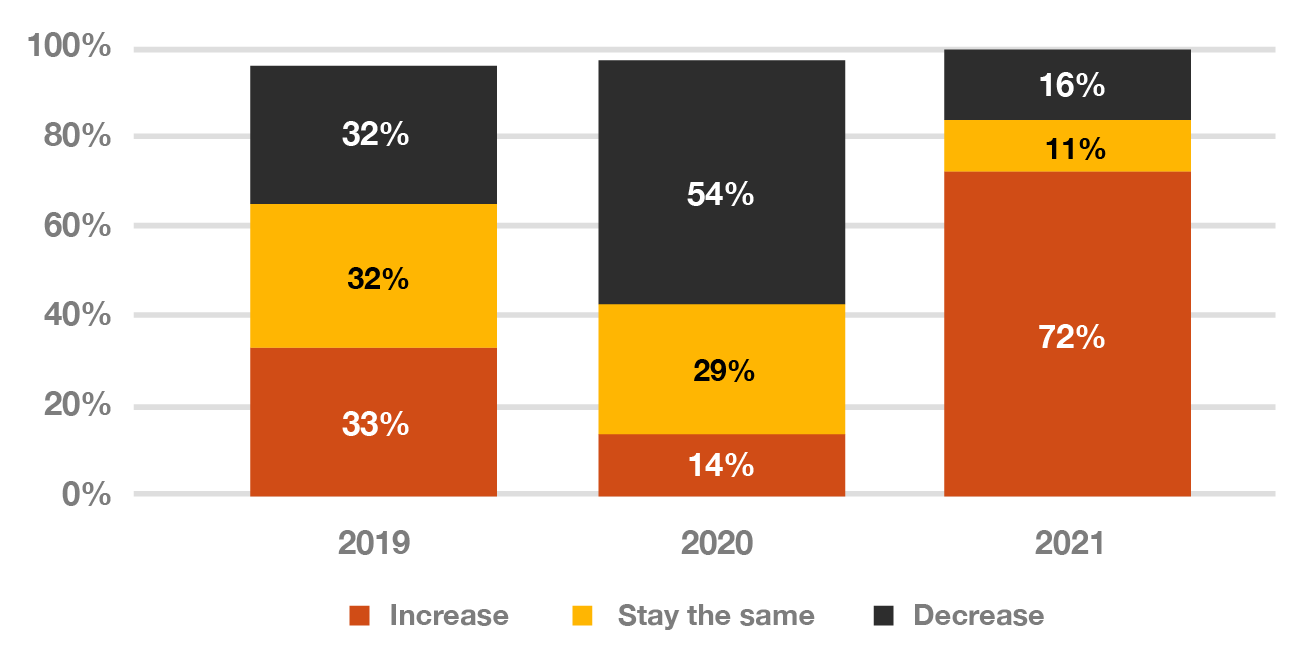
CEOs are also hopeful about developments in their own business
CEO Survey respondents are also optimistic about the sales and profitability of their own business. However, PwC Partner Edwin van Wijngaarden points out, as does Jan Willem Velthuijsen, that there are also a group of companies that are still struggling. According to them, the influx in the non-performing loans department of banks will increase in the next quarter. Van Wijngaarden: “The main reason is that organisations cannot meet their payment or repayment obligations to the Tax and Customs Administration and their bank. Debt restructuring in such cases is a prudent choice from an economic and a social perspective. If we don't succeed, many of the support measures will have been a waste of money and many businesses will go bankrupt unnecessarily.”
CEOs' expectations of revenue and profitability of their organisation
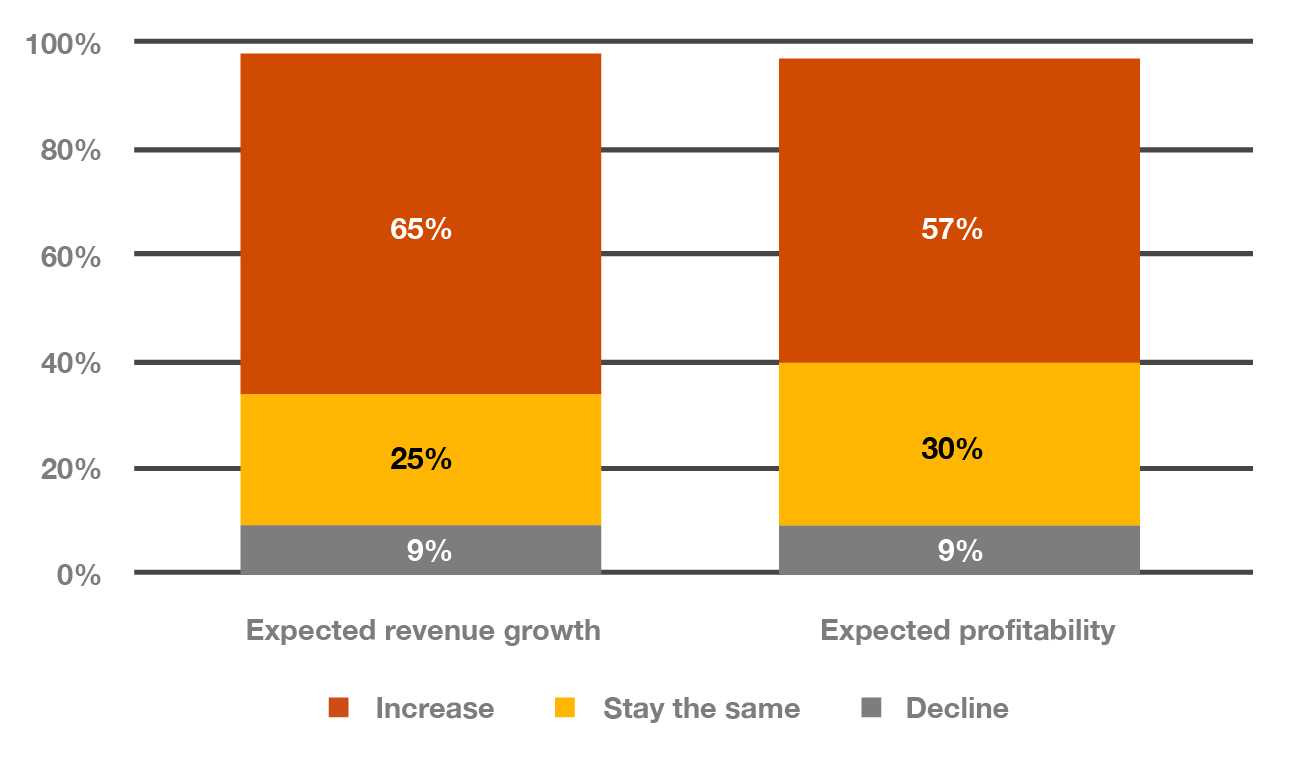 Read Edwin van Wijngaarden’s blog here
Read Edwin van Wijngaarden’s blog here
CEOs plan to accelerate their digital transformation
The opportunities and threats associated with COVID-19 are a recurrent theme in the CEO Survey. The results clearly show that CEOs wish to accelerate their digital investments. As many as 76 percent of Dutch CEOs say they will increase investment in digital transformation over the next three years. “COVID-19 has of course turned out to be an excellent test bed,” says Chief Economist Jan-Willem Velthuijsen. “Many technologies that were already available but were still underused have now been deployed on a large scale. Examples include many e-health solutions in healthcare. I think the promise of the possibilities offered by technology is now really going to be fulfilled.”
Investment plans over the next three years as a result of the COVID-19 crisis
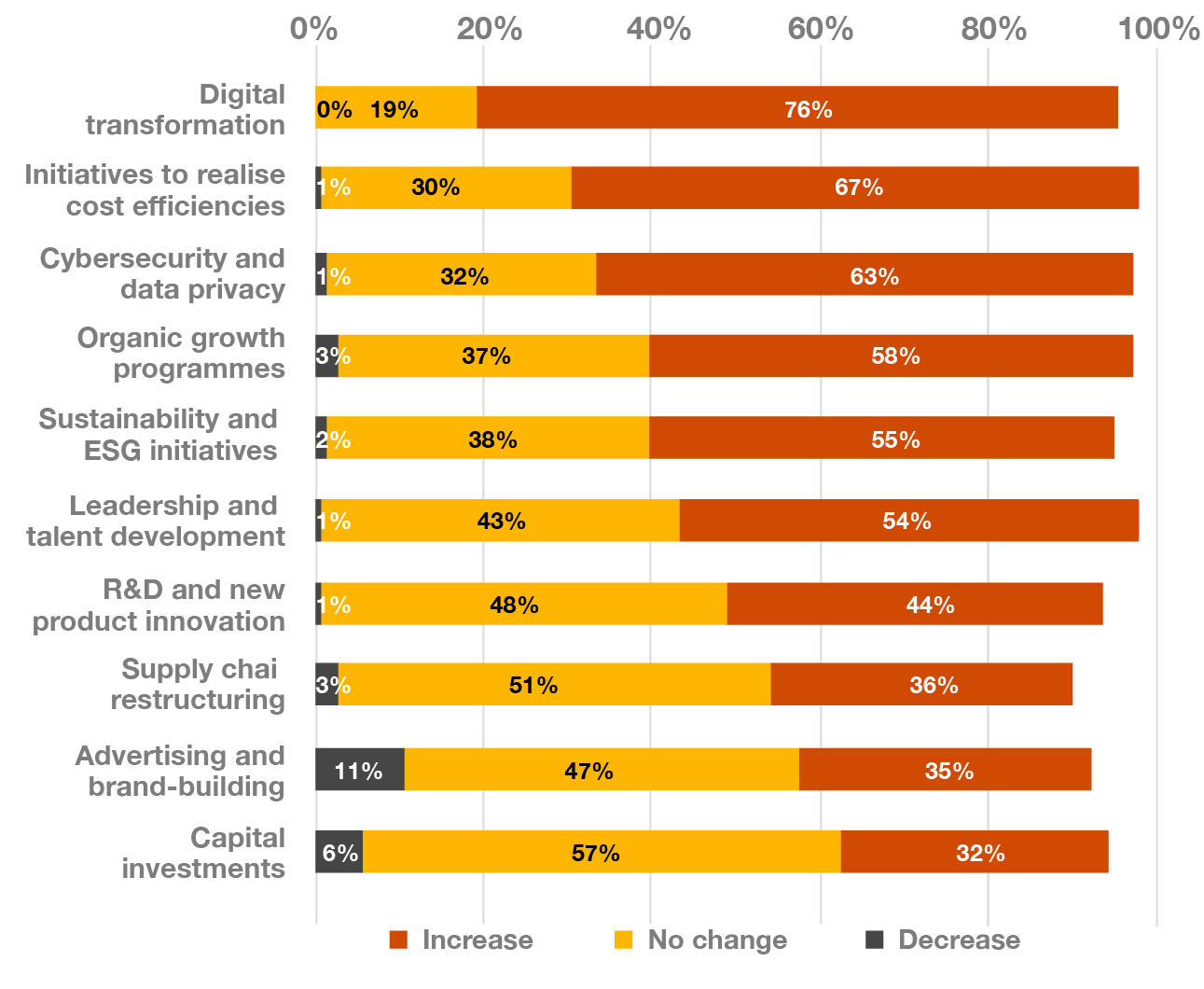
CEOs are also at the same time very concerned about the downside of digitisation
At the same time, CEOs have become more concerned about cyber threats at a time when many processes have taken a virtual form. Cyber threats now share the first place in the list of CEOs concerns, together with overregulation, which has topped this list in previous years. They also see the spread of misinformation as a major concern. Not unexpectedly, this year CEOs have also listed pandemics as a major threat that can greatly impact the performance of their business.
Threats CEOs are most concerned about (only extremely)
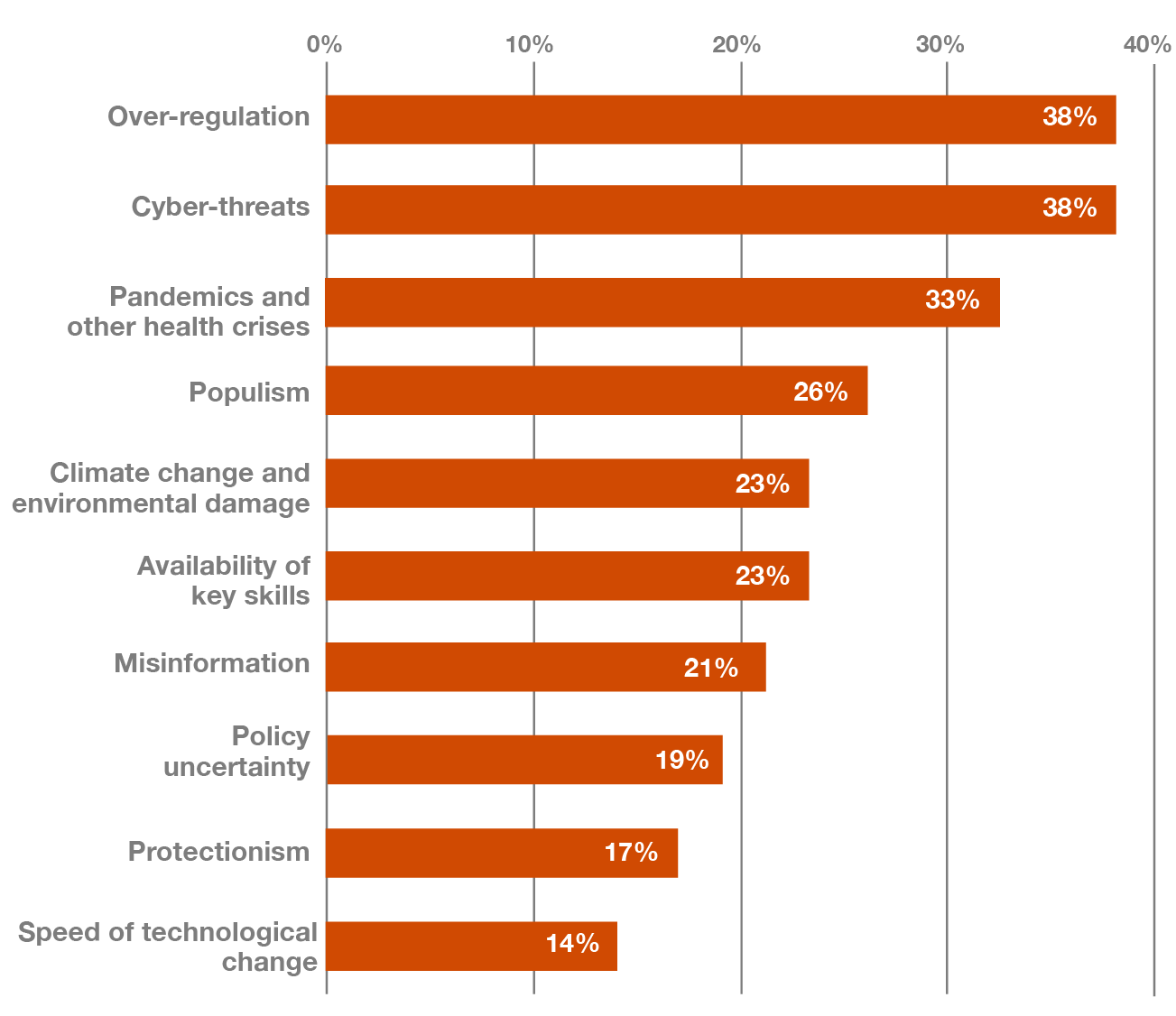
CEOs emphasise organic growth
CEOs continue to rely primarily on organic growth to drive their businesses forward over the next 12 months. Jan Willem Velthuijsen: “I think that's another optimistic sign in the difficult times we are still in. CEOs may not all be taking risks yet, but they're certainly not just focusing on cost reductions.”
Growth plans for the next 12 months
